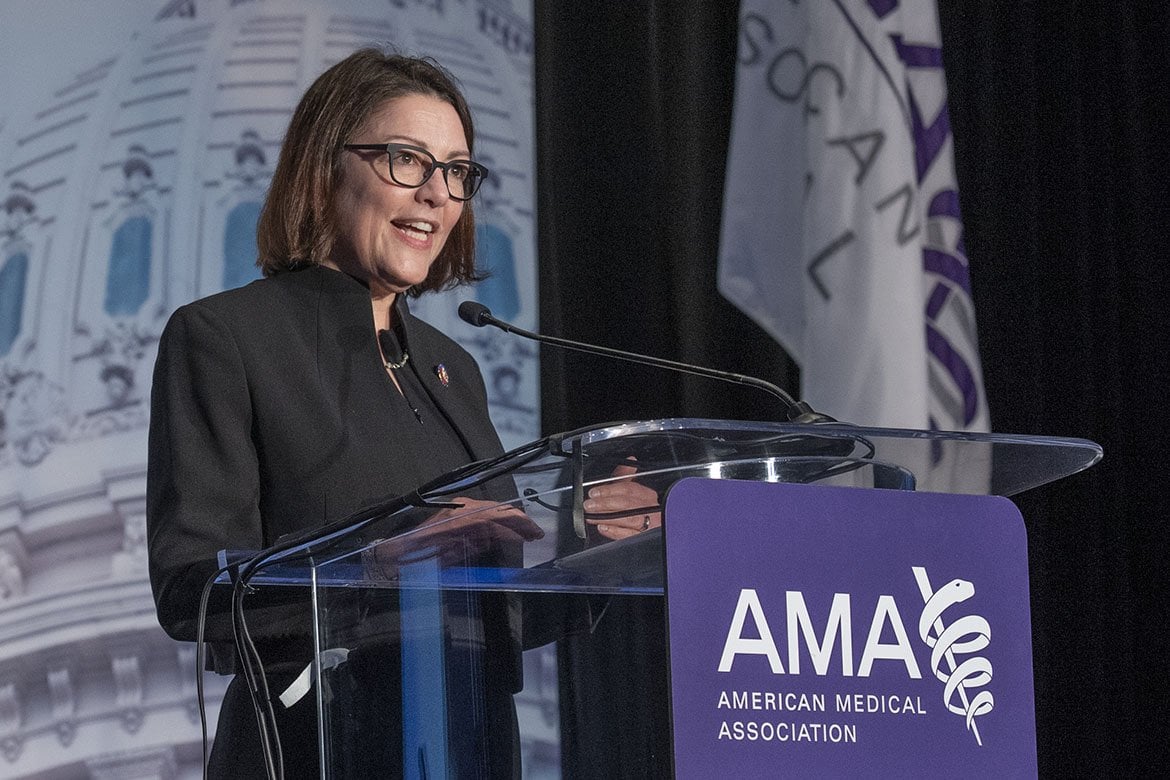Nearly a quarter of physicians (24%) say that the prior authorization (PA) process has led to a serious adverse event for a patient in their care, according to an AMA survey of 1,000 practicing physicians.
Additionally, 16% of the physicians surveyed report that PA has led to the hospitalization of a patient. Other adverse events include death, disability or permanent bodily damage, or other life-threatening events.
“These new survey results highlight that practices continue to devote significant time—an average of nearly two business day per week per physician—navigating prior authorization’s administrative obstacles,” said AMA President Susan R. Bailey, MD. “Even more concerning, this process can harm our patients.”
PA is a health plan utilization-management or cost-control process that requires physicians to obtain approval before a prescribed treatment, test or medical service qualifies for payment. The AMA offers prior authorization resources to support reform, improve practice efficiency and provide data to highlight the need for change.
“The prior authorization process became indefensible years ago,” Seema Verma, administrator for the Centers for Medicare & Medicaid Services (CMS), said during a speech at the AMA National Advocacy Conference in February. “Patients are frustrated, and doctors are sick of pointlessly wrangling with insurance companies.”
Commitment was made, but not acted on
More than nine in 10 (91%) respondents to the AMA survey report that PA delayed access to necessary care, 90% note that PA has a negative impact on clinical outcomes, and 74% say PA delays have led to patients abandoning their recommended course of treatment.
On average, physician practices complete 33 PAs per physician, per week, a workload that chews up 14.4 hours of physician and staff time as they fax and refax PA requests or wait on hold for a response instead of delivering patient care. Almost one third (30%) of respondents report having practice staff who exclusively work on PA processing, and 86% describe the administrative burden associated with PA as “high” or “extremely high.”
The survey results also show that PA burdens are growing. A majority of physicians (87% and 82%, respectively) report an increase in the volume of prior authorizations for prescription drugs and medical services over the past 5 years. Additionally, 86% of survey respondents say the burden associated with PA has gotten worse in the past 5 years.
In early 2018, the AMA, America’s Health Insurance Plans, the Blue Cross and Blue Shield Association, and other stakeholder organizations agreed to a detailed list of PA reforms and released a consensus statement committing to improving the PA process.
Read how physicians and payers collaborated on prior-authorization relief.
Reform bill has enough support to pass
Despite making this commitment, the survey results confirm that payers have done little to make the PA process less burdensome for patients and physicians—leading to a call for a federal legislative solution.
“The sad fact is little progress has been made toward the reform goals,” Dr. Bailey said. “The health insurance industry’s failure to achieve agreed-upon improvements illustrates a clear need for legislation like ‘The Improving Seniors’ Timely Access to Care Act,’ H.R. 3107, to rein in prior-authorization practices that adversely affect patient health.”
Watch a video showing why the bill is needed to fix prior authorization.
The bill was introduced by U.S. Reps. Suzan DelBene, D-Wash, Mike Kelly, R-Pa., Roger Marshall, MD, R-Kan.,), and Ami Bera, MD, D-Calif., It has 221 co-sponsors, a bipartisan majority of the U.S. House of Representatives, and includes many of the physicians serving in Congress.
The bill would apply provisions included in the consensus statement to Medicare Advantage plans, to which about 22 million Medicare beneficiaries belong and most of which (79%) require PA for some services, according to Kaiser Family Foundation research.
The bill’s provisions include:
- Requiring standardized electronic prior authorization.
- Allowing the Health and Human Services secretary to require real-time decisions for routine, noncomplex services that have high approval rates to encourage payers to forgo PA for services that don’t need it.
- Requiring transparency. This includes payers listing all services that require PA, disclosing what information is needed to complete a request, and reporting their rate of approvals, denials, successful appeals and time it takes to complete requests.
- Insurers should “minimize disruptions in needed treatment,” including minimizing repetitive PA for patients with stable chronic conditions.
The survey further illustrates why the legislation is needed. Despite the consensus on standardizing and automating the process, most physicians surveyed say telephone and fax are still the most used methods for completing PAs, and 22% say that their electronic health record does not offer electronic PA for prescription medications.
Despite the consensus making the process more transparent and ensure continuity of care, 67% of physicians say it is difficult to determine whether a prescription or medical service requires PA, and 83% say PA interferes with continuity of care resulting in missed doses or interruptions in chronic treatment.
The web-based AMA survey was administered in December 2019 and included responses from 1,000 physicians in the U.S. who provide at least 20 hours of patient care per week. Of those surveyed, 40% were primary care physicians and 60% were specialists.




